At BrauBeviale in Nuremberg last year, a massive fair of the brewing industry, I very naïvely asked about vegan alternatives to isinglass at the Murphy & Son stand (the main reason to go there was to drink cask ale and maybe score a free t-shirt), and was promptly given a sample of Super F, Murphy & Son’s fining product that can be used in cold tanks and casks just like isinglass, happens to be vegan (it’s silica-based), and according to one sales guy I spoke to a few weeks later in Krákow, is even compliant with the German purity law.
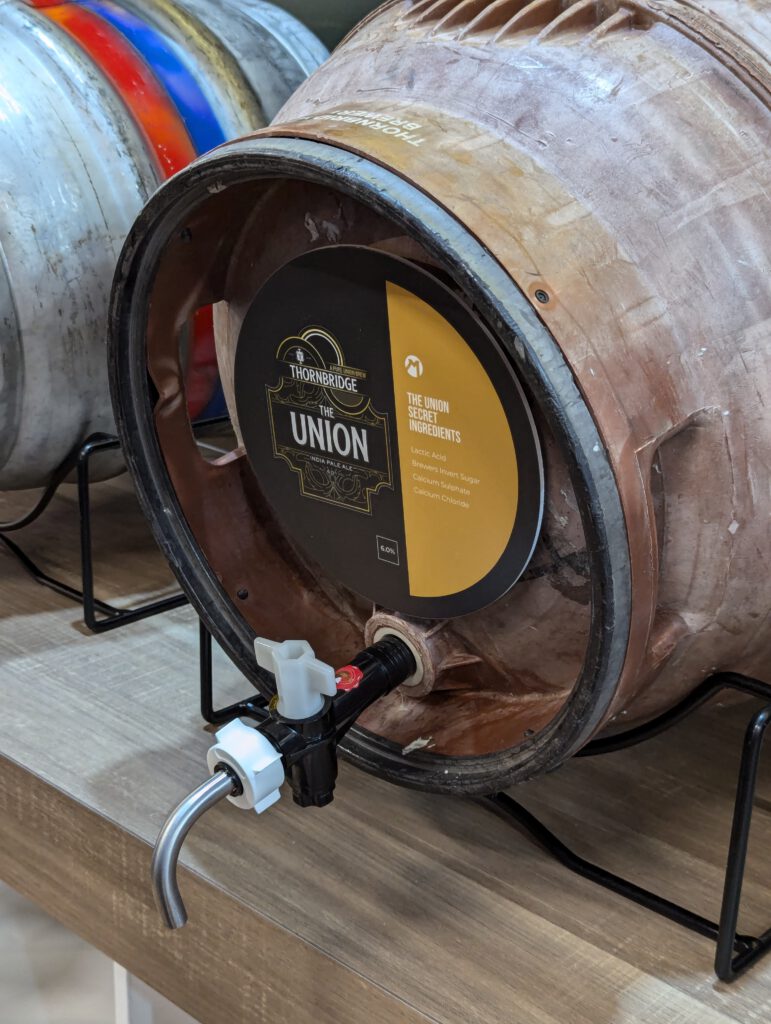
It took a bit longer than originally planned to brew a beer where I could try this out. I eventually settled for a simple recipe for a Pale Mild of 8.5°P (1.034) original gravity:
- 3.3 kg Mild Malt
- 0.2 kg Simpsons CaraMalt
And simple hop additions which should end up at about 18 IBU:
- 22g East Kent Golding (5.8% alpha acid) @ 60 min
- 18g East Kent Golding (5.8% alpha acid) @ 5 min
Mashing was fairly straightforward: single step infusion mash, though I may have slightly overshot the target temperature, as on brew day, I didn’t feel the best and thus didn’t pay as close attention to the brewing process as usual, which later showed in the final gravity of 3.5°P (1.014). I pitched a sachet of Lallemand Windsor Yeast, which was pretty much finished fermenting rather quickly, within 4 days.
After fermentation, I put the beer in my beer fridge to chill it down to about 5°C. Super F comes with a guide how to use it, and most importantly, how to trial the right dosage for your beer. Having only brewed 22 litres, I unfortunately didn’t want to use up quite so much beer to find the right dosage, so I just eyeballed it and picked the middle of the recommended dosage of 75 to 175 ml/hl – 125 ml/hl, i.e. about 25 ml for my homebrew-sized batch. I measured it out, and added it straight to the cold beer.
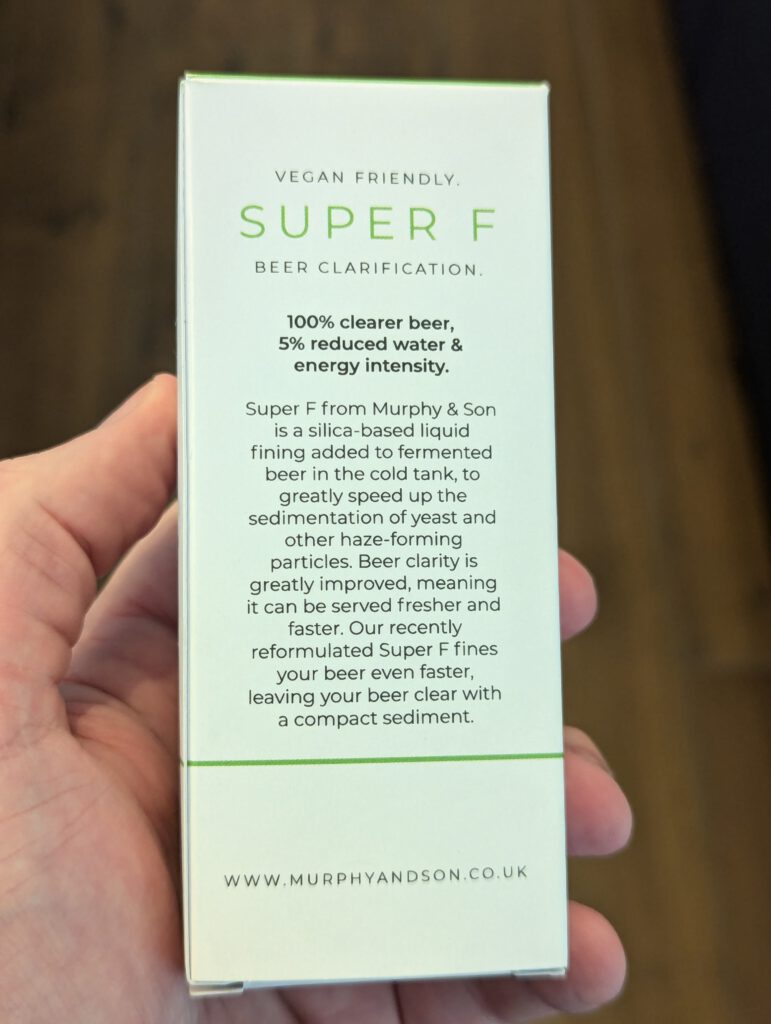
Normally, the Super F should do its trick within just a few days, but life got in the way and we only managed to bottle the beer two weeks later (bottle-conditioned, of course), with another 13 days of refermentation (at the time of writing) in the bottle.
So just earlier, I poured the very first bottle. Just look for yourself:
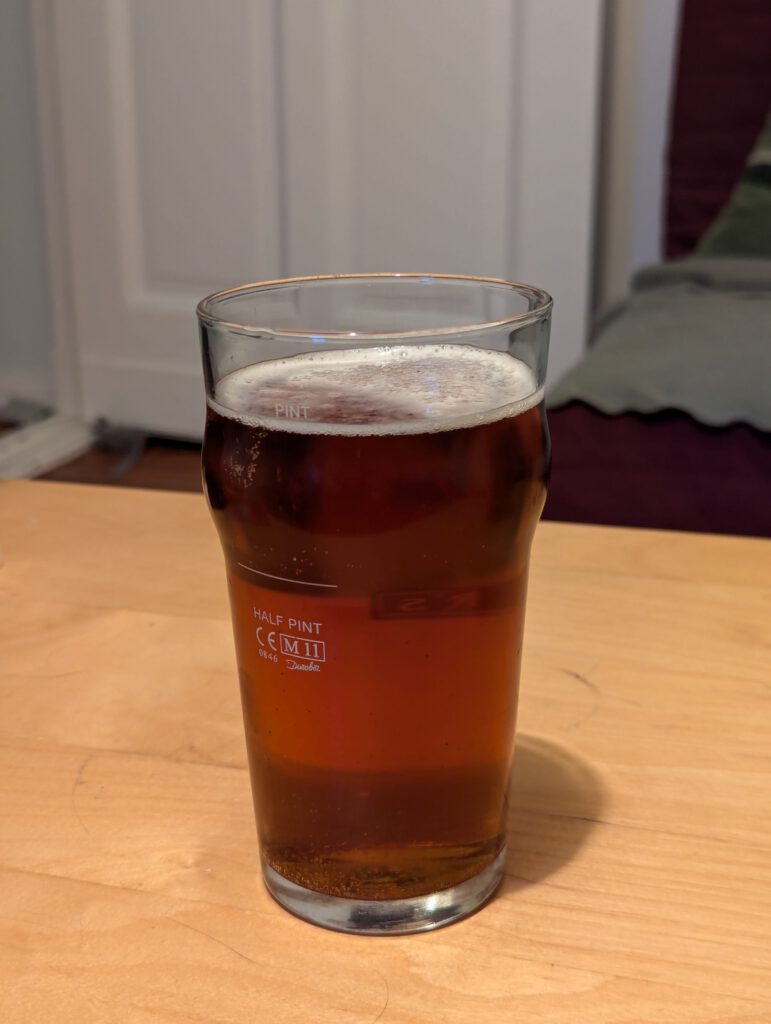
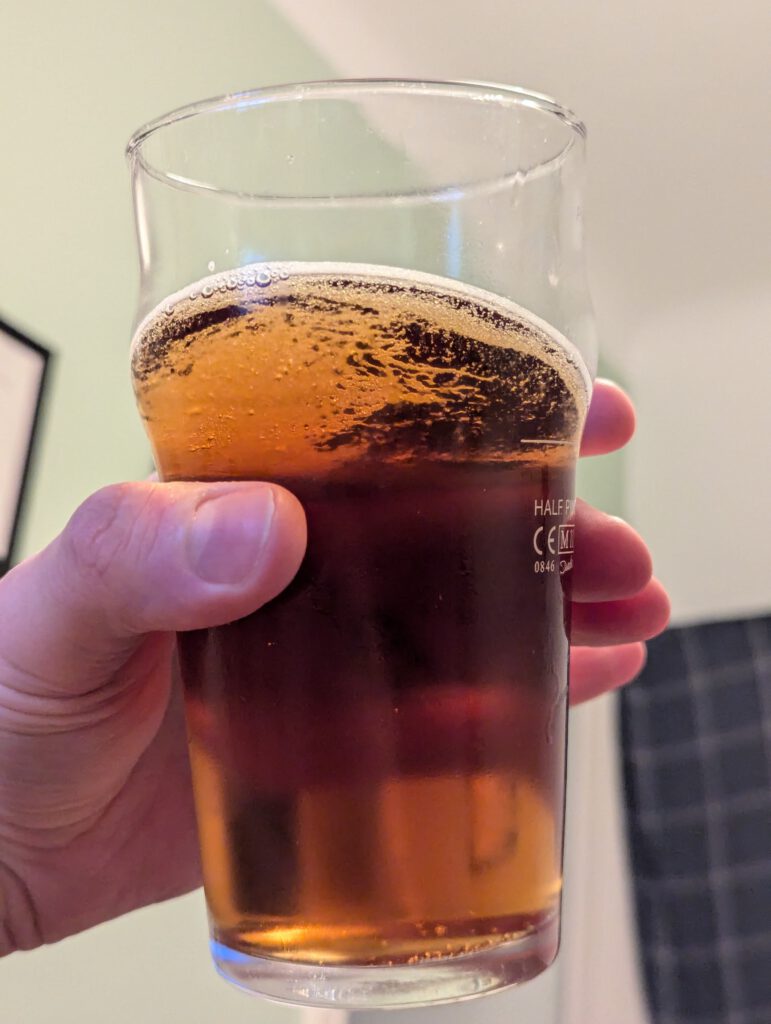
The beer came out pretty much clear. It was a wonderful colour, which against the light makes it appear absolutely brilliant.
It also tastes really nice: with just a hint of hop aroma, it starts very light but then turns out to be quite full-bodied, with a lasting biscuity finish. Since this beer is bottle-conditioned, the carbonation is relatively light and very well integrated. Together with the clarity that is equal to isinglass-fined cask ales, this is probably the closest I’ve gotten to reproducing something like a cask ale at home where everything is right: the flavour (thanks to British malt and hops), the clarity (thanks to Super F), the carbonation. It drinks exactly like a cask ale, too.
All in all, I’m absolutely impressed. Clarity has always been something I’ve struggled a bit with my home-brewed beers (Irish moss only gets you so far), in particular with chill haze. The Super F was very easy to use and did exactly was the product description said. The provided instructions were clear and got me exactly the result that I wanted.
I sincerely hope that Murphy & Son will eventually make this available not just to commercial brewers, but also to home-brewers. The sample I got at the BrauBeviale industry fair will last me for a few more home-brewed sized batches, but I would actually be willing to pay money for the product, provided the price is right.
(Full disclosure: I was given a sample bottle of Super F for free in November 2024, as well as a Murphy & Son t-shirt and a few half-pint pours of cask ale)

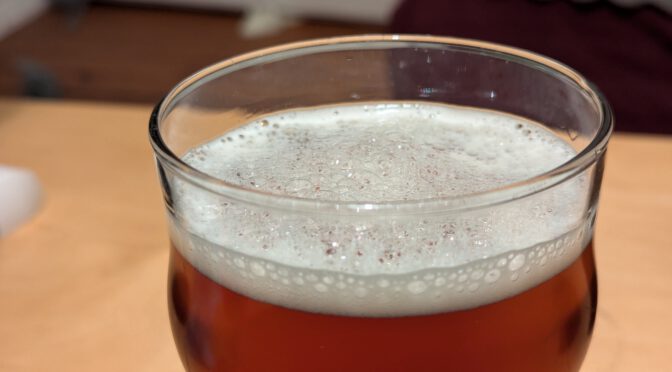
how much would a 25l homebrewer use, per gyle?
They recommend 75 to 175 ml/hl, I simply assumed a dosage of about 125 ml/hl and thus for my 22 liter batch added 25 ml. No idea to be honest whether I possibly over- or underfined the beer.
Crikey, that isn’t much at all! We use Super F for some beers and it is a useful alternative to isinglass.